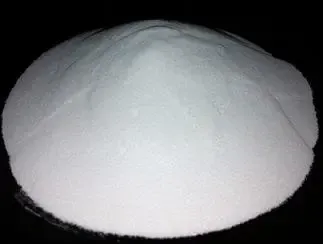
8 月 . 20, 2024 12:00 Back to list
Wholesale Prices for Rutile and Anatase Titanium Dioxide Available for Competitive Markets
The Importance of Wholesale Rutile and Anatase Titanium Dioxide
Titanium dioxide (TiO₂) is a widely utilized compound in various industries, primarily owing to its exceptional physical and chemical properties. It primarily exists in two crystalline forms rutile and anatase, each offering unique advantages that cater to different applications. Understanding the significance of these two forms, particularly in wholesale markets, is crucial for businesses and manufacturers.
Rutile vs. Anatase Key Differences
Rutile titanium dioxide is renowned for its superior properties, which include higher refractive index, better UV absorption, and greater chemical stability. This makes rutile particularly sought after in applications such as paints, coatings, plastics, and cosmetics, where brightness and durability are paramount. On the other hand, anatase titanium dioxide, while slightly less stable, is valued for its photocatalytic properties. It is often used in applications requiring light sensitivity, such as in self-cleaning surfaces and air purification systems.
Applications in Various Industries
The demand for titanium dioxide in wholesale has grown exponentially across different sectors. In the paint and coatings industry, rutile TiO₂ acts as a pigment that enhances the opacity and brightness of products, providing excellent coverage that extends the lifespan of the application. This has propelled the market for rutile, making it a key ingredient in both interior and exterior paints.
wholesale rutile and anatase titanium dioxide

In the plastics industry, titanium dioxide serves not only as a pigment but also as a filler material that improves the mechanical strength of products. Both rutile and anatase grades are utilized here, with manufacturers opting for these forms based on desired properties. For instance, rutile’s high durability makes it a preferred choice for outdoor plastic applications exposed to the elements.
The cosmetics industry also significantly benefits from titanium dioxide. It is commonly found in sunscreens due to its ability to block UV rays, helping to prevent skin damage. The demand for both rutile and anatase in cosmetic formulations is driven by trends focusing on health and wellness, as consumers increasingly seek products that offer protection from harmful sun exposure.
The Growing Demand for Sustainability
In recent years, there has been a notable shift towards sustainable practices across various industries. The photocatalytic properties of anatase titanium dioxide are being leveraged to develop innovative solutions for environmental challenges, such as air and water purification. As consumers and regulatory bodies intensify the push for eco-friendly products, the wholesale market for titanium dioxide is expected to evolve, with a growing focus on sustainable sourcing and usage.
Conclusion
The wholesale market for rutile and anatase titanium dioxide is a dynamic and vital aspect of numerous industries. The differences between these two forms offer diverse applications, catering to specific needs that drive demand. As the market continues to grow, sustainability will play a critical role in shaping the future of titanium dioxide production and usage. Manufacturers and suppliers who recognize these trends and adapt to the evolving landscape will be well-positioned to thrive in the competitive arena of titanium dioxide wholesale.
-
Lithopone for Plastic & TiO2 R-5568/SK-6658 Masterbatch Solutions
NewsMay.30,2025
-
China Leading Rutile TiO2 Manufacturer - R5566 & R996 Grades Available
NewsMay.30,2025
-
High-Purity Anatase & Rutile TiO2 Powder Trusted Manufacturer
NewsMay.30,2025
-
High-Purity Anatase Products Trusted Supplier & Manufacturer
NewsMay.29,2025
-
Best Price Eco-Friendly Rutile TiO2 Supplier & Wholesale Factory
NewsMay.29,2025
-
Chinese Anatase Titanium Dioxide for Ceramic Glaze Reliable Supplier
NewsMay.29,2025
